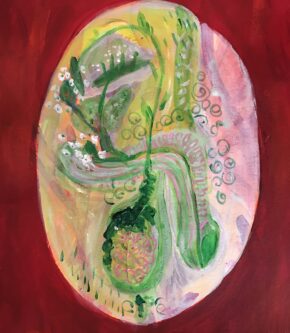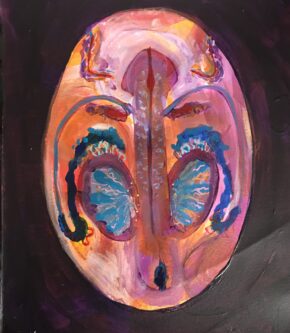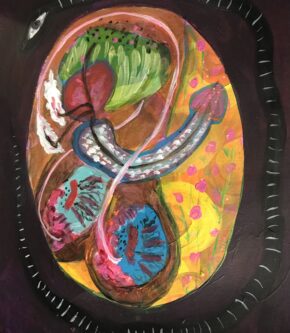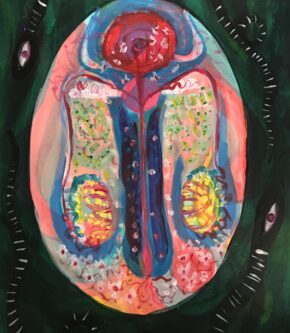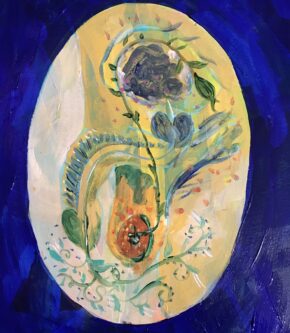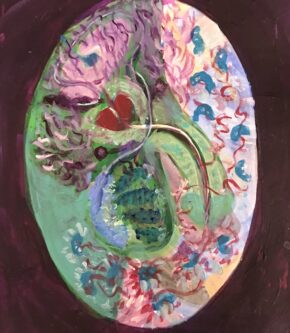I hate minimalism. All of it — the home renovation shows that turn every house into drab monuments to shiplap and landlord off-white. Tough-cushioned and spindly legged armchairs. Pleated beige linen pants that cost $500. But most of all, I hate the movement known as “minimalist literature.”
Yes, I said it. How uncouth! Sorry, but I don’t want to read yet another book about emotionally constipated, wealthy white people fretting about their shitty marriage. As a Mainer who didn’t grow up with much, my tolerance for rich retired people feeling unsatisfied while chowing down on expensive food and furnishing their seaside homes — as seen in this Ann Beattie story — is about zero.
“Ah! You don’t get it. This story skewers these people!” the defenders say. Perhaps, sure. But it boils down to how I feel about the much-hyped Succession. Even if a story is ostensibly “against” its subject, the very act of doing a character study invites sympathy. Especially when those characters do not learn or grow in any way. (Good literature doesn’t have to do anything specific, but it has to do something besides sympathize with those who already have power.) With my limited time on this earth I’m not inclined to spend it considering how tough it must be for the wealthy and self-centered, no matter how well-written.
I want to clarify that by “minimalist literature” I don’t mean every book written in a tight, sparse style. Many of those are absolutely brilliant. I’m referring specifically to a movement that came to prominence in the 1980s. Djamila Houmadi described it as such: “[These writers’] via negativa (negation path) is characterized by a will to minimize the form, subject and language of their works. By featuring middle-class (male) workers struggling with issues such familial relations and nonchalantly preoccupied with (the quotidian) manufactured goods, clutter, transports, junk food, television and so on, these works seem to hinge on ordinariness per se.”
It’s no accident that this type of writing has dominated the upper echelons of American literature since Reagan was elected. In fact, the CIA wrote a nice check to the University of Iowa to kick off its pioneering and highly influential Iowa Writers Workshop with the aim of shutting out leftist thought from literature, as investigated in Eric Bennet’s Workshops of Empire. As the New York Times said of the Iowa experience: “Good literature, students learned, contains ‘sensations, not doctrines; experiences, not dogmas; memories, not philosophies.’ The goal, according to Bennett, was to discourage the abstract theorizing and systematic social critiques to which the radical literature of the 1930s had been prone, in favor of a focus on the personal, the concrete and the individual.”
In light of our current cascading crises, where, as Amanda Hess put it, ““the end of the world’ [has] stopped referring to a future cataclysmic event and started to describe our present situation,” such restraint feels bizarre, even harmful.
How can you ignore “systemic social critiques” and focus on “sensation” when so many sensations are directly derived from the systemic failure of our society? The sensation of breathing in wildfire smoke.The sensation of opening an unexpected medical bill. The sensation of being trapped in a loud and lousy apartment despite having a “white collar” job. The sensation of a hot day in January. The sensation of dust coating your skin as you walk past a construction site where there used to be a field of wildflowers. The cool detachment of the personal from the political feels inauthentic when applied to our current moment.
This sense that too much of today’s lauded literature is not just failing to address our current moment, but is either unable or unwilling to confront it, was part of the reason I wanted to run Whiskey Tit Journal. We have always been and will continue to be focused on working class voices and experiences.
I’m proud to announce that our latest issue features small town burnouts, dog fights, curb furniture, and decrepit apartment buildings. At Whiskey Tit, we’ll continue to ruthlessly go after what matters now and elevate voices and perspectives that typically get shunted. Big thoughts, big narratives, winding style. All of it is welcome here on the anti-minimalist outpost of Whiskey Tit Journal.
Showing
Archives
Whiskey Tit Artist Statement
I started this series of paintings because I was thinking about the metaphors…
June 26, 2023 standard“Moderate Breeze” & “Fannings”
Moderate Breeze Irish hydrogapher and Royal Navy Officer, Francis Beaufort, devised the…
June 26, 2023 standardEx Party
The new house’s living room was so terrible that the hippo chair blended…
June 26, 2023 standardThe Country
Oona got into the shotgun seat of Isaac’s 2003 Chrysler minivan; Isaac, who…
June 26, 2023 standardLindbergh’s Ladders
When you hear the noise in the baby monitor, you think it’s just…
June 26, 2023 standardYou Walk Out
You leave, toting, above your head,a halo on your way to some placethat…
June 26, 2023 standardThe Colosseum
1 It was late September in Georgia, and the acute Georgian summer heat…
June 21, 2023 standardThe Elizabeth Line
The tube was always lonely. But not as lonely as that Monday, when…
June 21, 2023 standardRemodeling
They’ve changed a lot in this town The Historian tells me. Before the Panera and…
June 21, 2023 standard
